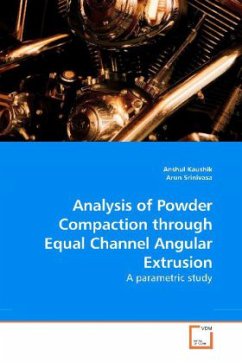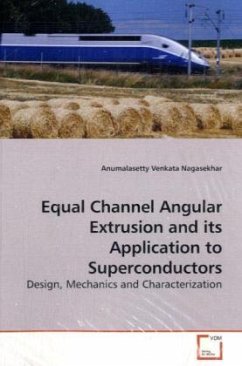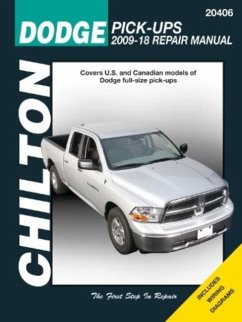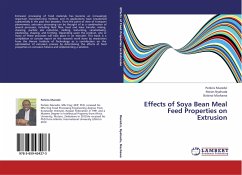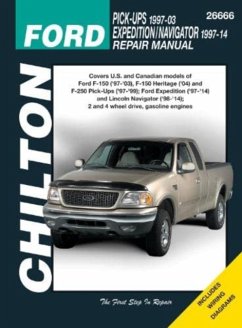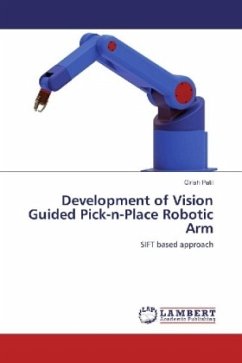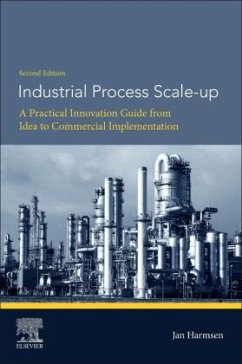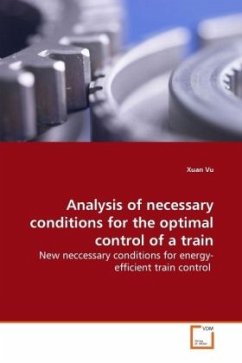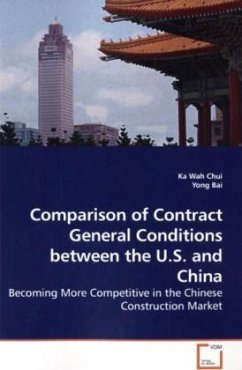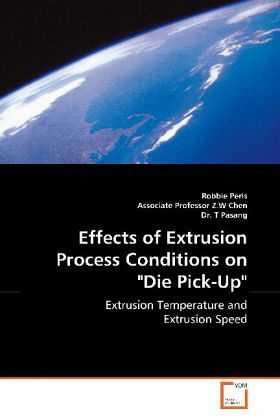
Effects of Extrusion Process Conditions on "Die Pick-Up"
Extrusion Temperature and Extrusion Speed
Versandkostenfrei!
Versandfertig in 6-10 Tagen
32,99 €
inkl. MwSt.

PAYBACK Punkte
16 °P sammeln!
In this research AA6060 alloy was used and was extruded at 25m/min, 30m/min, 35m/min, 40m/min and45m/min for a particular profile. The highest exittemperature increased from 542°C to 567°C when theextrusion speed was increased from 25m/min to 45m/min.Three types of die pick-up were identified. They werenamed as normal pick-up, die line pick-up and lumppick-up. Normal pick-up occurred regardless of theextrusion speed and exit temperature; however theamount of normal pick-up did not increase when theextrusion speed was increased. Die line pick-up occurred when the extrusion speed was 45m/min a...
In this research AA6060 alloy was used and was
extruded at 25m/min, 30m/min, 35m/min, 40m/min and
45m/min for a particular profile. The highest exit
temperature increased from 542°C to 567°C when the
extrusion speed was increased from 25m/min to 45m/min.
Three types of die pick-up were identified. They were
named as normal pick-up, die line pick-up and lump
pick-up. Normal pick-up occurred regardless of the
extrusion speed and exit temperature; however the
amount of normal pick-up did not increase when the
extrusion speed was increased. Die line pick-up
occurred when the extrusion speed was 45m/min and
appeared only on the die lines. Lump pick-up is not
significant since it was very rare.
AA6060 (0.4%Mg and 0.5%Si) alloy has about 0.27%
excess silicon and therefore at 555°C, Mg2Si
particles react with aluminium and excess silicon to
form liquid. However normal pick-up and die line
pick-up still occurred at temperatures lower and
higher than 555°C and therefore it confirms that
eutectic reactions do not influence formation of pickup.
Therefore die pick-up is most likely to be caused
due to a mechanical process rather
than a metallurgical process.
extruded at 25m/min, 30m/min, 35m/min, 40m/min and
45m/min for a particular profile. The highest exit
temperature increased from 542°C to 567°C when the
extrusion speed was increased from 25m/min to 45m/min.
Three types of die pick-up were identified. They were
named as normal pick-up, die line pick-up and lump
pick-up. Normal pick-up occurred regardless of the
extrusion speed and exit temperature; however the
amount of normal pick-up did not increase when the
extrusion speed was increased. Die line pick-up
occurred when the extrusion speed was 45m/min and
appeared only on the die lines. Lump pick-up is not
significant since it was very rare.
AA6060 (0.4%Mg and 0.5%Si) alloy has about 0.27%
excess silicon and therefore at 555°C, Mg2Si
particles react with aluminium and excess silicon to
form liquid. However normal pick-up and die line
pick-up still occurred at temperatures lower and
higher than 555°C and therefore it confirms that
eutectic reactions do not influence formation of pickup.
Therefore die pick-up is most likely to be caused
due to a mechanical process rather
than a metallurgical process.



